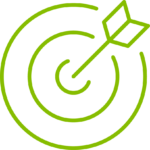
Budgeting is the practice of recording your income and expenses to allow you to better understand and use your money. Money can buy limitless things, but our income is usually not infinite. A budget helps to define and create boundaries for your finances. With clear guidelines in place, it is easy to spend your money wisely. A budget helps create a clear picture of what you spend in a typical month and what you do and reveals ways for you to better use your finances.
By limiting yourself to spending just what you need, you can end up with more money to distribute towards other goals and areas that bring you joy.
♦ ♦ ♦
What Happens Without a Budget?
Without a budget to guide us, our wallets and bank accounts become a constant game of estimated costs and future expenses. Without a clear understanding of the money that is required at any point, we find ourselves stuck in a pattern of over or underestimating our expenses, sometimes with drastic results. If you overestimate your expenses, then extra money looks like it is available for spending when it really is not. It is tempting to spend that money on something fun, but without a budget then it is difficult to be certain that cash is truly available. A surprise bill or extra expense would be predictable with a proper budget. Without that support, you can find yourself financially overextended.
On the other hand, underestimating your expenses can land you in trouble quickly. If you underestimate your expenses, then you will know quickly in either the form of a declined card or an unexpected checking account balance. Recovering from this kind of financial setback may require that you pull money from your hard-earned savings. In emergency situations, when you lack the support of savings accounts, you may incur interest in the form of credit card debt – a slippery slope that can lead to financial hardship.
Don’t Rely on Estimation!
Relying on an estimation of your expenses and income is not a safe or effective approach to managing your money. If you are very diligent about spending, saving, and paying your bills on time, then estimation can often work. However, this method of keeping track is not secure.
Estimating your finances can leave you vulnerable to as little as one financial setback, one forgotten credit card bill, or one miscalculation. You are either walking the tightrope of finance, or too much money is set aside as a buffer for unexpected expenses. Your money can serve you better once you know what is available.
♦ ♦ ♦
Your Money Can Go Further
Spending money is fundamental to our lives, but keeping a mental accounting of all those numbers is unrealistic for most people. Between credit cards, loans, and various spending accounts, it is easy to lose track of our spending. It is difficult to remember constantly changing numbers, and nearly impossible to calculate those costs and percentages mentally. That is why the practice of keeping to a budget is useful. Your budget remembers these numbers for you and helps to calculate exactly how much you have at any time. It tells you what is available for spending, how much you will need to have until your next paycheck and can even catalogue your bills and savings goals for you. With a budget, you can be confident of the money you have at any time.
When you are aware of your available cash and can predict what you will need, you can safely set aside money to pursue your goals. You can invest in your savings without the worry of an urgent need to withdraw. With consistent and careful investment, your savings will grow exponentially.
Simply put, keeping a budget helps your money go further.
♦ ♦ ♦
How To Build a Budget: Three Essentials
Building a budget is different for everyone. It can be exciting, overwhelming, and sometimes tedious. You have countless options for budget organization. There are no rules around how you need to build your budget, but there are three fundamental components that you should always include.
1. Log Your Income
Logging your income lets you know the exact amount of money you have coming in. Once your paycheck comes in, you can divide it amongst your various accounts and expenses.
Keeping track of your income empowers you to set money aside for savings, expenses, and more. This can help you hit your savings goals and keeps you honest about your working capital.
2. Track Your Spending
Tracking what you spend is your foundation for forming an effective budget. Once you know how much you are spending, you can start figuring out where your money should really be going.
Among the ways you can track your spending include saving your receipts from purchases and logging your spending from your most recent statements and account history. If you have the dedication, try noting down all your purchases for a week and log them into your budget at the end of the week. Tracking your spending helps you to recognize patterns so that you get a better understanding of your usual expenses.
When you track all your spending, you get a complete idea of your expenses and spending habits. And you get to see exactly how much you are spending on groceries and gas. You get a clear view of the expenses that you already know about, and you also gain insight into your other spending habits. Seeing the true numbers on how much you might be spending on coffee each month, or other habits, might be an eye-opening experience. What feels like a small expense can really add up over the course of a month or a year. With a good budget, you can clearly see any overlooked expenses.
3. Anticipate Future Expenses
We all have expenses that keep coming back. A budget helps you to categorize and track your expenses so that you know how much you spend and where. Keeping track of your upcoming expenses helps keep you prepared for current and future bills. By simply recording your recurring monthly expenses, such as Wi-Fi or car insurance, you won’t be surprised when a bill arrives. Thoroughly understanding when these expenses come through lets you automatically set up payments without the anxiety that you might overdraft your account. Keeping a log of your recurring expenses is the best way to stay prepared so that you know how much to budget for them.
♦ ♦ ♦
In Closing
Your budget is a simple, effective tool that helps you keep track of your expenses. By knowing the exact amount you make and spend, you can take full advantage of your money. You can be confident when making purchases, planning for the future, or setting aside money for savings and investments.
Ready for More?
Explore Related Articles
How to Realistically Reduce Your Expenses
Follow us on Social for More Financial Content





